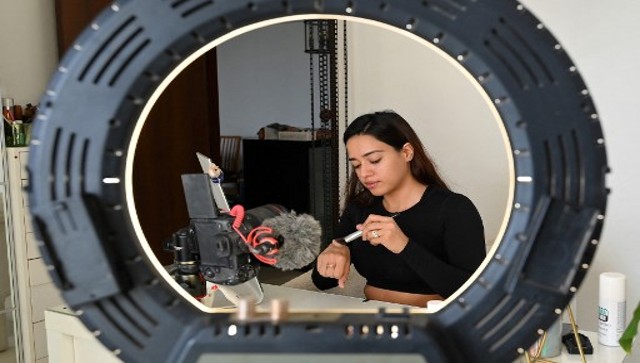In today’s fast-paced digital era, applying social media filters before uploading a picture has unnervingly become standard procedure. However, facing a future where it is to tell the real from the fake can be worrisome. Hence, driven in part by a desire to shield people from the detrimental effects of social media filters on mental health, the National Assembly of the French parliament passed a bill on 30 March, introducing some new rules for influencers . Notably, the cross-party bill was approved by the National Assembly and will now head to the Senate where it is anticipated to pass without much opposition. Let’s take a look at the new rules and responsibilities and the penalties if the new rules are broken. Also read: Picture Perfect: Why TikTok's latest 'Bold Glamour' beauty filter has been branded toxic New bill’s provisions There is no room for trouble here. The new law would fundamentally alter how French influencers post, and it would force platforms to develop new techniques for detecting violations. According to the new provisions, all influencers will require to disclose if they are using a filter or if any part of their body or face has been photoshopped.
Nous rendrons obligatoire le fait d’afficher l’utilisation d’un filtre ou d’une retouche sur les contenus photos et vidéos lors d'un partenariat rémunéré.
— Bruno Le Maire (@BrunoLeMaire) March 24, 2023
Nous le faisons pour limiter les effets psychologiques destructeurs de ces pratiques pour l’estime des internautes.
The influencers will also have to inform their followers when their post is a paid promotion. Notably, the country already mandates that sponsored content be obvious to viewers; but, with the new legislation in place, the disclaimer banner would be required, according to Mashable, not just in the description but also over the photographs or videos.
Toute promotion concernant la chirurgie esthétique, par un influenceur dans le cadre d'un partenariat rémunéré, sera désormais interdite.
— Bruno Le Maire (@BrunoLeMaire) March 24, 2023
Additionally, the bill mandates that the activities of kid influencers be closely inspected. According to the bill’s provisions, minors under the age of 16 will need state authorisation before they may operate on the platforms. In order to prevent abuse, the French media said that 90 per cent of the money they make from commercial activities will be frozen until they are 18 years old. Restricting influencers’ advertising of financial products (hello, bitcoin bros), alcohol, tobacco, and other items while holding them to the same standards as traditional media. Also read: ‘De-influencing’ is all over TikTok: What does it mean? Fines, prisons, account bans According to TechCrunch, if the bill is approved by the Senate, influencers who don’t comply with the new rules risk stiff penalties, including up to six months in jail and a €300,000 fine. Influencers who have been convicted will also not be permitted to use social media to further their careers, reported Wion. “Not an attempt to stigmatise an industry” In November of last year, French Green Party member Aurélien Taché introduced the bill proposal. After Taché’s claims that influencers pushed scams because there were no repercussions, the French authorities became very intrigued by the subject. Members of President Emmanuel Macron’s party Arthur Delaporte and Stéphane Vojetta delivered the updated version that will finally become law, according to a report by TechCrunch.
Accompagner les influenceurs, protéger les consommateurs : ce sont ces deux objectifs qui nous ont guidés, avec les acteurs du secteur et les députés @StephaneVojetta et @ArthurDelaporte, pour construire ce nouveau cadre.
— Bruno Le Maire (@BrunoLeMaire) March 24, 2023
With the rise of social media and beauty influencers, children, teenagers, and adults alike are frequently led to feel that one should look a specific way. Reaching such absurd expectations frequently develops body dysmorphic disorder, which can have serious negative effects on one’s physical and mental health. French news outlet RFI quoted Economy and Finance Minister Bruno Le Maire as saying, “The sector of commercial influence and content creation is not yet taken seriously enough.” The social media creator industry, he says, “is a formidable creative vector” with financial advantages, but it also struggles with “unclear” or non-existent rules. According to Wion, he also made it clear that the move was intended to safeguard both the French government and the customers, not to stigmatise a particular industry. He said, “Influencers must be subject to the same rules as those that apply to traditional media,” adding the internet “is not the Wild West.” Also read: TikTok ban: Australia joins US, Canada and others to ban TikTok from govt-issued devices Threat to mental health According to studies, young girls are more vulnerable to the negative effects of filters and photo editing. One in two girls claims that the toxic beauty content on social media contributes to low self-esteem, according to a Dove’s Self-Esteem research study, which provides evidence of why young people feel this way. More than half of girls say they can’t live up to the beauty standards projected on social media. People frequently aspire to get facial cosmetic surgery as a result of this pressure to meet beauty standards. With inputs from agencies Read all the Latest News , Trending News , Cricket News , Bollywood News , India News and Entertainment News here. Follow us on Facebook, Twitter and Instagram.


)

)
)
)
)
)
)
)
)



